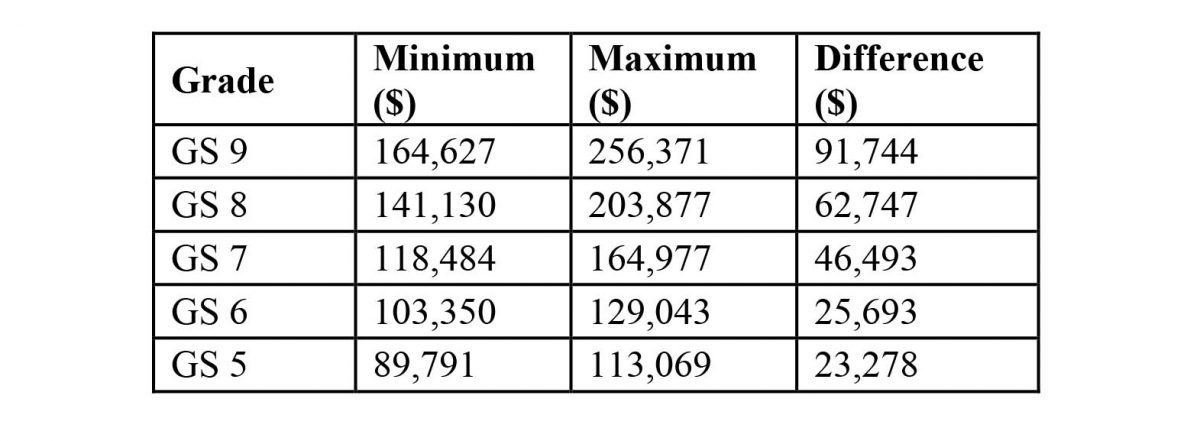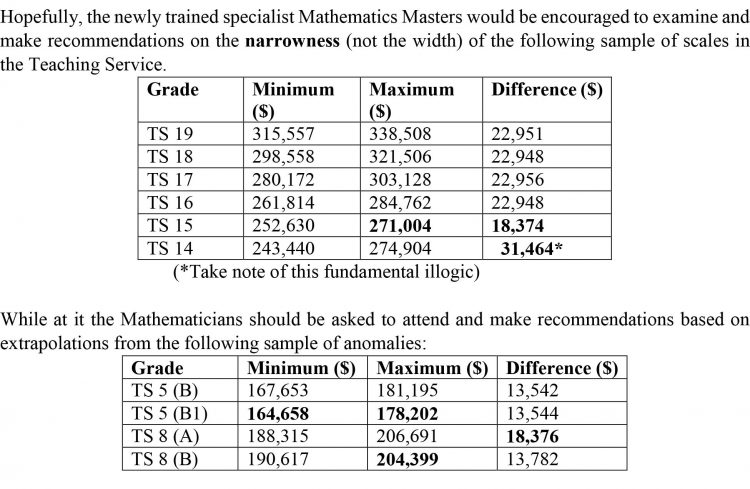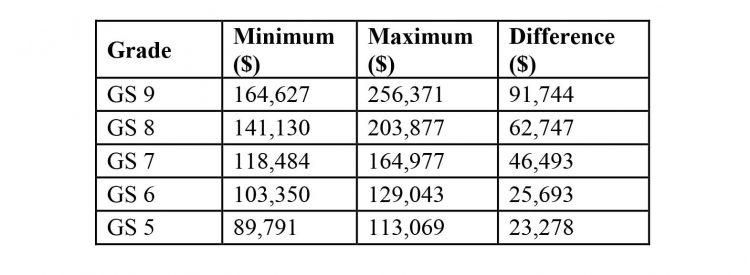Dear Editor,
Whether at the level of Ministerial Administration, Service Commission or Union, the parties involved adamantly ignore the fact that the current Job and Salary structure of the Teaching profession was conceived by the relevant managers in the colony of British Guiana. Since independence successive administrations have insistently displayed belief in, if not subservience to, the constipated compensation arrangement, despite its perceptible incompatibility with related arrangements across the very CARICOM countries, in which its productivity is heralded as first in terms of CSEC, CAPE Examination results. Interestingly, the accolades are awarded locally to the students, in profound disdain of the efforts of their teachers – an attitude also exhibited by the latter’s Union.
It remains a puzzle that any Union, in as dynamic an industrial relations environment as Guyana, should display such complacency, rather than being more assertive in its argumentation for improving both the professional and human condition of its members. From a certain distance there appears to be a leadership deficit. For example, opportunity appears not to be taken of Guyana’s increasingly active relationship with other CARICOM countries, and therefore to follow-up with counterpart Caribbean Unions so as to be informed of their status and related conditions of employment – with a view to informing itself first, achieving consensus of members next, on a projected slate of conditions to be negotiated with their employer.
Indeed, the latter – Ministry of Education – has recently been in a very communicative mood. For example, the Minister in an address to the Union last April was most evocative when remarking that the GTU will not find any resistance from within the Ministry to “a voice that is practical, sensible and where it is impartial”, “the amalgamation and reflection of highly diverse and sometimes contrasting ideas and desires of our teaching force” (the latter comment would appear to imply a lack of cohesion within the Union’s ranks). The Minister went on to point out the importance of being recognised as ‘balanced, unbiased and defender of the rights of teachers’. Then went further to commit to working hand-in-hand with the Union to advance the overall standing of teachers, e.g. a) ‘that teachers receive access to professional opportunities that align with the needs of educators’; b) ‘ that policies are formulated to advance the empowerment of teachers and their professional practice’.
It is against such a background that there appears good reason to review the thrust of the developmental initiatives involving the Teaching Profession since 2020. In Stabroek News of November 2020 was seen the President’s announcement of entering in an agreement with the Vice-Chancellor, UWI, Jamaica, regarding the provision of developmental programmes (unidentified) over the next five years (unspecified). It is difficult to conceive of teachers not being included in such programmes. There appears to be no elucidation since however. Then in August 2021 there was the comprehensive 20 page supplement announcing the availability of scholarship awards at the following Universities – International University of Applied Sciences, Germany, Jain University of India, UWI Open Campus, University of Southern Caribbean and the Indira Ghandi National Open University.
A total of 108 programmes ranged from Certificate up to Master’s Degree, and from as little as two months to three years. Teachers are bound to be involved. To date, however, there has been too little news of related successes of any kind. By January 2022 there was the announcement about manning the Teaching Service totally with ‘trained and licensed’ Teachers – the project would have had to be undertaken against the following samples of the colonial Job Hierarchical Structure. By May 2022, the Minister of Education had made it abundantly clear to untrained teachers that – “Failure to enroll may result in the Ministry’s inability to continue employment of the persons failing”, “Criterion requiring the employment of in-service teachers for one year before entering the CPCE has been withdrawn”. It is not known whether the issue of compensation on termination was raised by the Union. Nor, for that matter, is it known whether any agreement has been reached as to respective levels of appointments of prospective graduates. To the best of knowledge there has been no published news of follow-up action by the Ministry, or indeed reaction from the Union.
In the meantime, by the beginning of 2022 GOAL (budgeted at $1.3Bn) was being touted by the Minister of Public Service “as one of the best programmes ever implemented by any government in this part of the world, and perhaps even beyond” Of the 6,000 scholarship awardees reported in 2021, some 4,180 were women. Another 4,500 awardees were anticipated in 2022. But as yet no reference to successes, particularly in relation to Teachers. In the milieu the Minister with responsibility for Finance had announced that $200 million had been allocated to provide financial support to ‘trainee teachers’ at the Cyril Potter College of Education, where enrollment for 2021- was announced as over 3,000. (Hopefully this institution’s teachers are all licensed). But the hyperactivity of the Ministry of Education was further upgraded by the announced World Bank’s funding of a new Education developmental project.
Intricate in this highly desirable human developmental project must be the logic of having to restructure a range of curricula that would have to be conducted by specially selected qualified teachers who would report to even better informed Principals. It is difficult to believe that the Teachers’ Service Commission is not apprehensive of the major restructuring required of the existing job hierarchy. But in anticipation of the difficulty in adding up, or multiplying, all the above implications into a logically new Job Structure, there has been announced the thoughtful initiative of a Specialist Mathematics Teacher Training Programme funded by the Canada-CARICOM Expert Deployment Mechanism. In this connection it would be interesting to learn whether the selection of the first 30 (licensed) teachers will be made by one or a combination, of the Ministry of Education, Teachers’ Service Commission, and Guyana Teachers’ Union.
For those who would enquire what all the fuss is about, please note that the highest paid of 29 TSC Grades (sub-graded) is called SPECIALIST – outstanding in the whole Public Service for not having a salary scale.
Like all public servants they earn no increments for their annual performance, despite the fact that like colleague teachers they are required to achieve targets by semester – a most fundamental contrast to any other ministerial operation. Noteworthy however is the comparison where in the 14 grade Public Service Structure (established in 1992) positions at Grade TS11 are remunerated from $256,052 – $411,914. For what it is worth the Permanent Secretary – at Grade 14 – is compensated from $469,671 – $831,010. Apart from the fact that the latter does not have to be licensed, it is unusual for specific targets to be achieved and reported on more frequently than annually. In neither service anyhow is there mention of individual performance evaluation being conducted – to earn increments within the respective scales. It is the case however that teachers not only complete required reports each semester, and on specific occasions; but their performance and records are subject to inspection.
But at the same time, it may be useful to revert to the following (in)comparable values in the Public Service:
Hopefully all the concerned parties would have revolted against this analysis, but by showing their joint determination to organise the most comprehensive consultancy project, preferably with a CARICOM dimension, to bring the Guyana Teaching Service to the increased value resulting from all the vaunted developmental exercises. Hopefully the GTU will now be positioned to convince the Ministry of Education that it can be truly regarded as a ‘voice that is practical, sensible and impartial’.
Sincerely,
E.B. John











